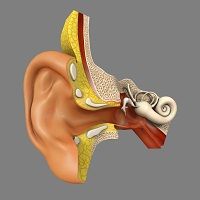Age and Executive Capacity Linked to Auditory Stimuli
Age and the level of the brain's executive capacity (EC) are connected to the attention that adults give to novel auditory stimuli, according to Kirk Daffner, MD, chief of the division of Cognitive and Behavioral Neurology and director of the Center for Brain/Mind Medicine at Brigham and Women's Hospital in Boston, MA. The findings are set to be presented in a poster session on Apr. 20 at the American Academy of Neurology meeting in Washington, DC.

Age and the level of the brain’s executive capacity (EC) are connected to the attention that adults give to novel auditory stimuli, according to Kirk Daffner, MD, chief of the division of Cognitive and Behavioral Neurology and director of the Center for Brain/Mind Medicine at Brigham and Women’s Hospital in Boston, MA. The findings are set to be presented in a poster session on Apr. 20 at the American Academy of Neurology meeting in Washington, DC.
Daffner and colleagues separated the participants into 4 groups based on age including: young, middle-aged, young-old, and old-old. Then they measured the event-related potential (ERP) at their frontocentral sites. The subjects were tested on auditory stimuli which consisted of repetitive pure tone, rare pure tone, and rare novel as well as visual stimuli that was made up of repetitive letters and infrequent letters. The P3a signal was used to measure the appropriation of attentional resources.
“Under the auditory-attend condition, subjects were instructed to responds to rare target tones and ignore visual stimuli,” the investigators explained. “Under the auditory-ignore condition, subjects were instructed to respond to rare visual target letters and ignore auditory stimuli.”
What the team found was that the individuals with a higher than average EC had a larger P3a response to novel auditory stimuli.
The team notes that the role of EC in processing novel auditory stimuli has yet to be examined in depth.